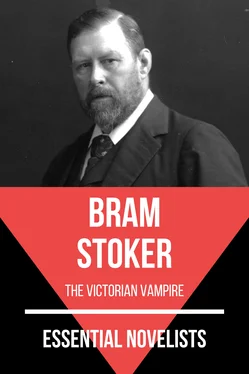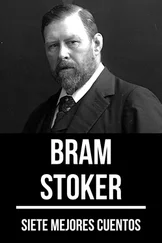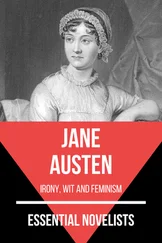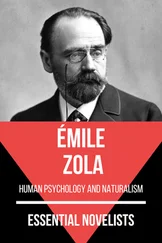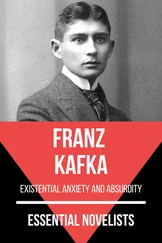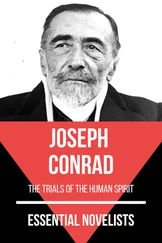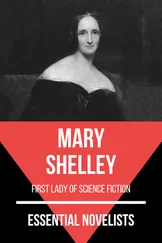Beyond the green swelling hills of the Mittel Land rose mighty slopes of forest up to the lofty steeps of the Carpathians themselves. Right and left of us they towered, with the afternoon sun falling full upon them and bringing out all the glorious colours of this beautiful range, deep blue and purple in the shadows of the peaks, green and brown where grass and rock mingled, and an endless perspective of jagged rock and pointed crags, till these were themselves lost in the distance, where the snowy peaks rose grandly. Here and there seemed mighty rifts in the mountains, through which, as the sun began to sink, we saw now and again the white gleam of falling water. One of my companions touched my arm as we swept round the base of a hill and opened up the lofty, snow-covered peak of a mountain, which seemed, as we wound on our serpentine way, to be right before us:—
“Look! Isten szek!”—“God’s seat!”—and he crossed himself reverently.
As we wound on our endless way, and the sun sank lower and lower behind us, the shadows of the evening began to creep round us. This was emphasised by the fact that the snowy mountain-top still held the sunset, and seemed to glow out with a delicate cool pink. Here and there we passed Cszeks and Slovaks, all in picturesque attire, but I noticed that goitre was painfully prevalent. By the roadside were many crosses, and as we swept by, my companions all crossed themselves. Here and there was a peasant man or woman kneeling before a shrine, who did not even turn round as we approached, but seemed in the self-surrender of devotion to have neither eyes nor ears for the outer world. There were many things new to me: for instance, hay-ricks in the trees, and here and there very beautiful masses of weeping birch, their white stems shining like silver through the delicate green of the leaves. Now and again we passed a leiter-wagon—the ordinary peasant’s cart—with its long, snake-like vertebra, calculated to suit the inequalities of the road. On this were sure to be seated quite a group of home-coming peasants, the Cszeks with their white, and the Slovaks with their coloured, sheepskins, the latter carrying lance-fashion their long staves, with axe at end. As the evening fell it began to get very cold, and the growing twilight seemed to merge into one dark mistiness the gloom of the trees, oak, beech, and pine, though in the valleys which ran deep between the spurs of the hills, as we ascended through the Pass, the dark firs stood out here and there against the background of late-lying snow. Sometimes, as the road was cut through the pine woods that seemed in the darkness to be closing down upon us, great masses of greyness, which here and there bestrewed the trees, produced a peculiarly weird and solemn effect, which carried on the thoughts and grim fancies engendered earlier in the evening, when the falling sunset threw into strange relief the ghost-like clouds which amongst the Carpathians seem to wind ceaselessly through the valleys. Sometimes the hills were so steep that, despite our driver’s haste, the horses could only go slowly. I wished to get down and walk up them, as we do at home, but the driver would not hear of it. “No, no,” he said; “you must not walk here; the dogs are too fierce”; and then he added, with what he evidently meant for grim pleasantry—for he looked round to catch the approving smile of the rest—“and you may have enough of such matters before you go to sleep.” The only stop he would make was a moment’s pause to light his lamps.
When it grew dark there seemed to be some excitement amongst the passengers, and they kept speaking to him, one after the other, as though urging him to further speed. He lashed the horses unmercifully with his long whip, and with wild cries of encouragement urged them on to further exertions. Then through the darkness I could see a sort of patch of grey light ahead of us, as though there were a cleft in the hills. The excitement of the passengers grew greater; the crazy coach rocked on its great leather springs, and swayed like a boat tossed on a stormy sea. I had to hold on. The road grew more level, and we appeared to fly along. Then the mountains seemed to come nearer to us on each side and to frown down upon us; we were entering on the Borgo Pass. One by one several of the passengers offered me gifts, which they pressed upon me with an earnestness which would take no denial; these were certainly of an odd and varied kind, but each was given in simple good faith, with a kindly word, and a blessing, and that strange mixture of fear-meaning movements which I had seen outside the hotel at Bistritz—the sign of the cross and the guard against the evil eye. Then, as we flew along, the driver leaned forward, and on each side the passengers, craning over the edge of the coach, peered eagerly into the darkness. It was evident that something very exciting was either happening or expected, but though I asked each passenger, no one would give me the slightest explanation. This state of excitement kept on for some little time; and at last we saw before us the Pass opening out on the eastern side. There were dark, rolling clouds overhead, and in the air the heavy, oppressive sense of thunder. It seemed as though the mountain range had separated two atmospheres, and that now we had got into the thunderous one. I was now myself looking out for the conveyance which was to take me to the Count. Each moment I expected to see the glare of lamps through the blackness; but all was dark. The only light was the flickering rays of our own lamps, in which the steam from our hard-driven horses rose in a white cloud. We could see now the sandy road lying white before us, but there was on it no sign of a vehicle. The passengers drew back with a sigh of gladness, which seemed to mock my own disappointment. I was already thinking what I had best do, when the driver, looking at his watch, said to the others something which I could hardly hear, it was spoken so quietly and in so low a tone; I thought it was “An hour less than the time.” Then turning to me, he said in German worse than my own:—
“There is no carriage here. The Herr is not expected after all. He will now come on to Bukovina, and return to-morrow or the next day; better the next day.” Whilst he was speaking the horses began to neigh and snort and plunge wildly, so that the driver had to hold them up. Then, amongst a chorus of screams from the peasants and a universal crossing of themselves, a calèche, with four horses, drove up behind us, overtook us, and drew up beside the coach. I could see from the flash of our lamps, as the rays fell on them, that the horses were coal-black and splendid animals. They were driven by a tall man, with a long brown beard and a great black hat, which seemed to hide his face from us. I could only see the gleam of a pair of very bright eyes, which seemed red in the lamplight, as he turned to us. He said to the driver:—
“You are early to-night, my friend.” The man stammered in reply:—
“The English Herr was in a hurry,” to which the stranger replied:—
“That is why, I suppose, you wished him to go on to Bukovina. You cannot deceive me, my friend; I know too much, and my horses are swift.” As he spoke he smiled, and the lamplight fell on a hard-looking mouth, with very red lips and sharp-looking teeth, as white as ivory. One of my companions whispered to another the line from Burger’s “Lenore”:—
“Denn die Todten reiten schnell”—
(“For the dead travel fast.”)
The strange driver evidently heard the words, for he looked up with a gleaming smile. The passenger turned his face away, at the same time putting out his two fingers and crossing himself. “Give me the Herr’s luggage,” said the driver; and with exceeding alacrity my bags were handed out and put in the calèche. Then I descended from the side of the coach, as the calèche was close alongside, the driver helping me with a hand which caught my arm in a grip of steel; his strength must have been prodigious. Without a word he shook his reins, the horses turned, and we swept into the darkness of the Pass. As I looked back I saw the steam from the horses of the coach by the light of the lamps, and projected against it the figures of my late companions crossing themselves. Then the driver cracked his whip and called to his horses, and off they swept on their way to Bukovina. As they sank into the darkness I felt a strange chill, and a lonely feeling came over me; but a cloak was thrown over my shoulders, and a rug across my knees, and the driver said in excellent German:—
Читать дальше
